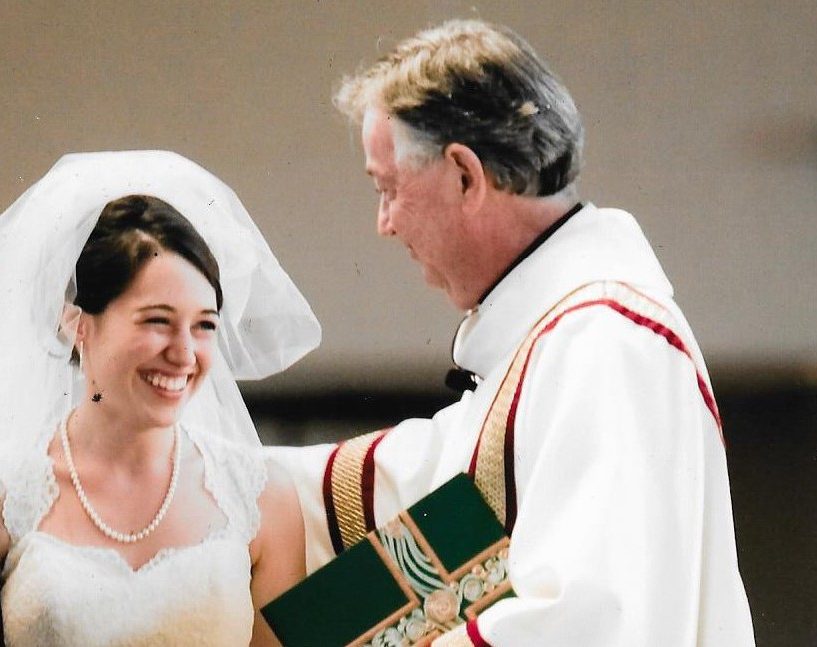B Cycle – 14th Sunday in Ordinary Time 21
Mk. 6:1-6
Think of this for a minute. Jesus returns to his hometown. He reputation was known for he had healed the sick, had giving sight to the blind, he had raised the dead 12 year old girl, he had walked on water and calmed the storm winds. Everyone in that town would have heard about each one of those miracles. Now they listen to him and are astonished at his wisdom while at the same time they cannot get past him being the boy they knew growing up in their midst and they took offense at him.
How many times have we heard this gospel without ever taking the time to recall the many times he worked a miracle when people did not believe? The man lying by the pool of Bethesda believed in the power of the healing waters of the pool. Yet he had no knowledge the man before him was Jesus the source of healing. What about the little girl who died in last week’s gospel, the people there told Jesus he was too late to help her.
Is God’s power to work among us restricted by our faith. It sems this gospel is telling us something about faith being dependent on our belief in the promises of God, and the life and death of Jesus Christ and the transforming power of the Holy Spirit.
This gospel should make us reflect on what we believe about Jesus Christ because this gospel is challenging the very foundation of what we believe and in whom do we believe. Is our faith based on what we know about Jesus, learned about Jesus, studied about Jesu? Or is our faith based on a belief in the promises of God to restore what we lost by the sin of Adam?
Is our faith based on a belief that God to send his only son into the world so that those who believe will not perish but have eternal life? Or are we like those in his native place, whose image of Jesus was based on what they knew about Jesus. His neighbors and friends in Nazareth could not get beyond their knowledge of the boy they knew as he grew up among them. The Pharisees had a similar problem with Jesus because they believed obedience to the law was all that was necessary to please God and that belief was in direct opposition to the Father Jesus came to show them. All this doubt in who Jesus was because it did not fit their image of what the Messiah should be.
Therein my brothers and sisters, lies the challenge of this gospel for us because without experiencing an encounter with Jesus, our image of Jesus can only be an observed one not an experienced one. Without an experience of Jesus our belief can only be in the Jesus we have heard about and that does not help us open our eyes and hearts to the transforming power of faith in the promises of God?
We should have an advantage over those neighbors of Jesus because we have thousands of years of Chruch teachings and tradition. His neighbors watched him grow up in their midst. They would have seen him playing with other children and saw him cry as he scraped a knee on the dry dusty ground. They would have seen him interacting with the other kids and like all kids have disagreements about whose father was the strongest.
Their minds only knew what they saw, and they were not open to him being any more than the carpenter’s son. We should have an advantage over them yet if you think about it much of what we know about Jesus is an intellectual knowledge about Jesus. Christ in his own words, invites us into an intimate experience where we can discover the heart of God.
Think about their reaction to hearing Jesus speak in the Synagogue. It was one of wonder and awe. They were amazed at his wisdom and understanding of the scriptures. They were astonished. But instead of inviting him to reveal more their minds could not accept anything different than what they believed him to be, the son of the carpenter. It is the story of the woman at the well all over again. She put up the barrier by discussing theology to avoid a deeper conversation with Jesus. Could it be the same with us? Are we open to have Jesus open our eyes and minds to the dept of God’s love for us?
Jesus came to show us the father and what Jesus reveals is a God who desires to change our hearts, motivating us to desire intimacy with him and Jesus through the power of the Holy Spirit.
Yet like the people of Nazareth, we have barriers preventing us from trusting the reality of his death and resurrection frees us from the penalty of our sins. If we can believe in forgiveness of sins, we can begin to live our lives as disciples rather than attempting to appease God by our faithfulness.
We instinctively know there is more beyond our current experience of God and my experience tells me we do desire to feel God’s forgiveness and feel his arms enfold us. However, the challenge to take that first step and respond to Jesus is met with resistance and we just like those in the gospel miss the experiencing the power of God.
Our desire for God’s touch should motivate us to allow Jesus to flood us with the transforming power of forgiveness and create in us a hunger to discover the barriers we have constructed which keeps us experiencing God’s love for us. All we need to do is say to Jesus “I want to know you and I want to know and believe in the promises of God” and then listen to the Spirit as he speaks to your heart.
